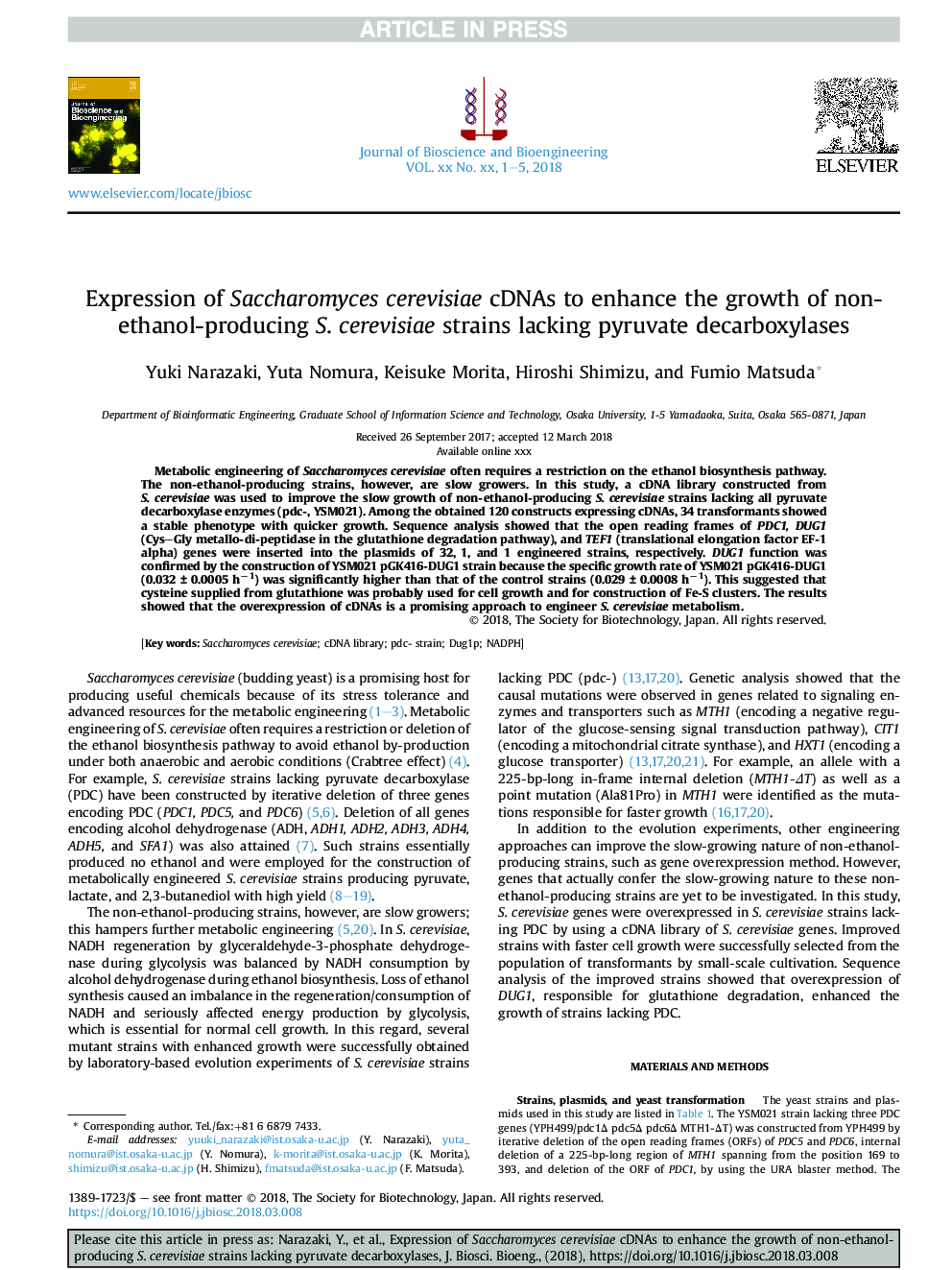| Article ID | Journal | Published Year | Pages | File Type |
|---|---|---|---|---|
| 6489555 | Journal of Bioscience and Bioengineering | 2018 | 5 Pages |
Abstract
Metabolic engineering of Saccharomyces cerevisiae often requires a restriction on the ethanol biosynthesis pathway. The non-ethanol-producing strains, however, are slow growers. In this study, a cDNA library constructed from S. cerevisiae was used to improve the slow growth of non-ethanol-producing S. cerevisiae strains lacking all pyruvate decarboxylase enzymes (Pdcâ, YSM021). Among the obtained 120 constructs expressing cDNAs, 34 transformants showed a stable phenotype with quicker growth. Sequence analysis showed that the open reading frames of PDC1, DUG1 (Cys-Gly metallo-di-peptidase in the glutathione degradation pathway), and TEF1 (translational elongation factor EF-1 alpha) genes were inserted into the plasmids of 32, 1, and 1 engineered strains, respectively. DUG1 function was confirmed by the construction of YSM021 pGK416-DUG1 strain because the specific growth rate of YSM021 pGK416-DUG1 (0.032 ± 0.0005 hâ1) was significantly higher than that of the control strains (0.029 ± 0.0008 hâ1). This suggested that cysteine supplied from glutathione was probably used for cell growth and for construction of Fe-S clusters. The results showed that the overexpression of cDNAs is a promising approach to engineer S. cerevisiae metabolism.
Related Topics
Physical Sciences and Engineering
Chemical Engineering
Bioengineering
Authors
Yuki Narazaki, Yuta Nomura, Keisuke Morita, Hiroshi Shimizu, Fumio Matsuda,
